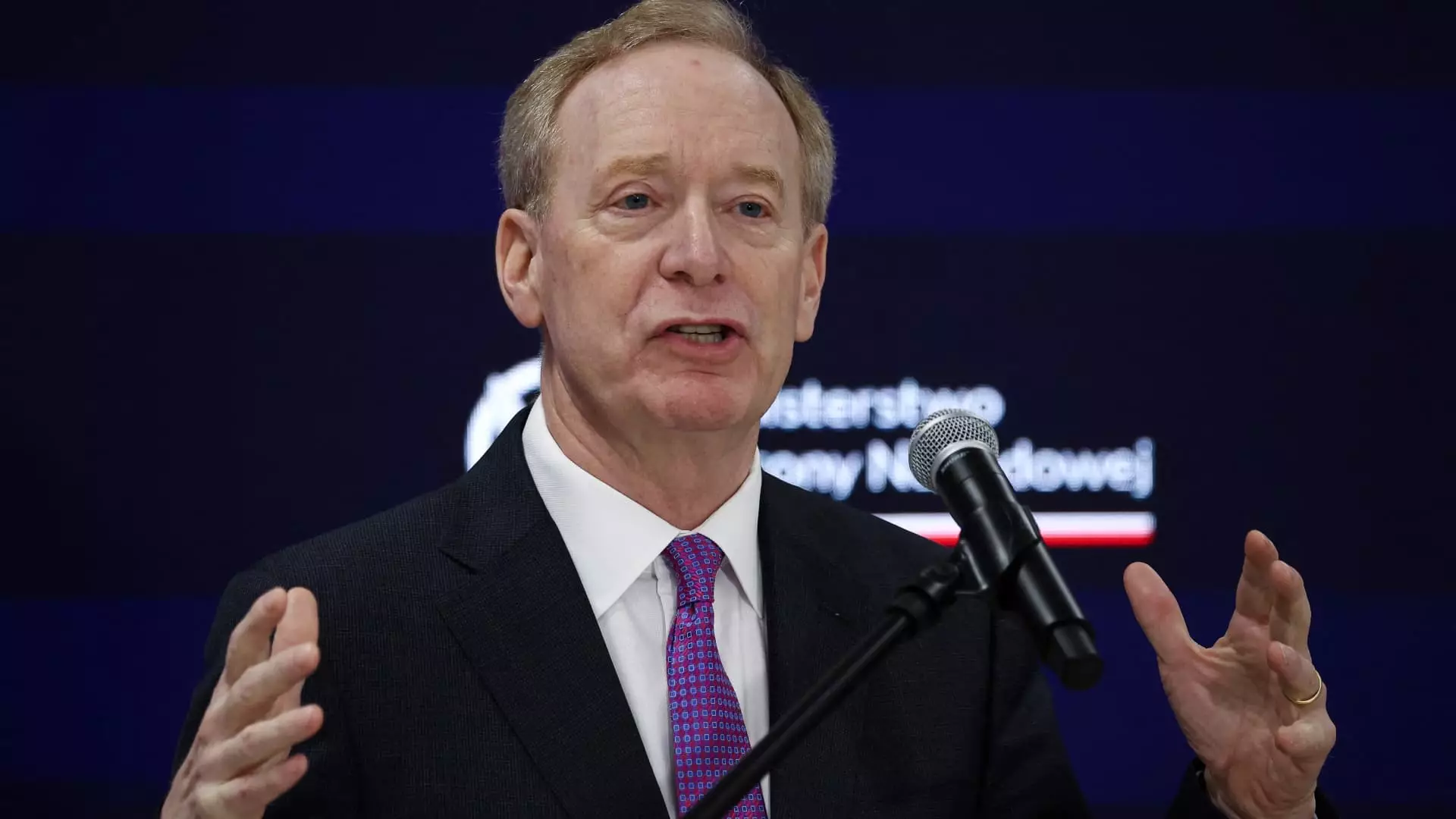As the world grapples with increasing tensions surrounding trade and regulation, Microsoft has positioned itself as a company keen on adhering to local laws and regulations, especially in Europe. President Brad Smith’s recent statements made it clear that the technology behemoth is prepared to align with European legislation, even when there may be disagreements. The nuanced approach underlines the company’s desire to foster goodwill in a landscape where U.S. tech firms are often viewed with skepticism.
Smith’s reaffirmation that Microsoft respects European laws—even in cases where they’ve disagreed or faced significant penalties—serves as a compelling message to European lawmakers. This sentiment reflects a growing awareness within the tech community of the need to bridge cultural and legal divides. Rather than taking an adversarial posture, Microsoft’s strategy hinges on building relationships built on respect for local laws and customs, which could be essential for ensuring long-term operational viability.
Regulatory Challenges: The EU’s Digital Markets Act
The European Union has long sought to regulate the massive influence of American tech firms, an initiative that has become increasingly visible through measures such as the Digital Markets Act (DMA). The DMA serves as a regulatory framework aimed at curtailing the power of major tech players deemed “gatekeepers,” with the explicit goal of promoting fair competition. Apple and Meta’s recent hefty fines for DMA violations showcase the EU’s firm stance against non-compliance.
Microsoft faces a unique challenge; the company must navigate these regulatory waters while maintaining its software and services’ competitive edge within Europe. Smith has emphasized that compliance with laws such as the DMA is not merely a legal obligation but a moral commitment to ethical business practices. This acknowledgment could serve to humanize Microsoft in the eyes of European citizens, engendering trust during a time when U.S. companies often face public backlash.
Trade Tensions and Their Implications
The backdrop of these corporate regulatory interactions is a fraught geopolitical landscape, particularly exacerbated by U.S. President Donald Trump’s stances on trade. The controversial tariffs imposed on EU goods have laid the groundwork for a potential tit-for-tat scenario exacerbated by the U.S.’s grievances towards European regulatory practices. Smith’s comments are undoubtedly a counter-narrative to the prevailing perception that U.S. tech companies view European regulations as barriers rather than necessary guidelines.
While the latter view might lead to isolationism, Microsoft’s approach stands as a model for other tech giants that may be inclined to push back against foreign regulations. By integrating compliance into their operational models, firms can not only avoid punitive actions but position themselves as responsible global citizens dedicated to local governance.
Building a Framework for Digital Trust
The crux of the issue lies in fostering a culture of digital trust. Microsoft’s commitment goes beyond mere compliance; it signals a willingness to engage in dialogue with European regulators. Engaging in these discussions allows for a cooperative framework that can improve technology development aligned with best practices and ethical standards within the local context.
This willingness also extends to the user experience across European borders. By affirming their respect for local laws, Microsoft opens up pathways for collaboration on issues such as data privacy and cybersecurity, areas where European laws hold significant weight. Building trust is not only beneficial for business; it could lay the foundation for more robust and innovative technology ecosystems in Europe.
Microsoft’s evolving stance on compliance and engagement with European laws is a compelling case study in corporate adaptation to global challenges. With trade wars brewing and regulatory frameworks solidifying, companies cannot afford to operate in silos. The tech industry stands at a crossroads, where aligning corporate practices with the regulatory expectations is essential for sustainable growth. By striving for compliance without compromising innovation, Microsoft is not just securing its future; it is paving the way for a more collaborative global digital landscape.

